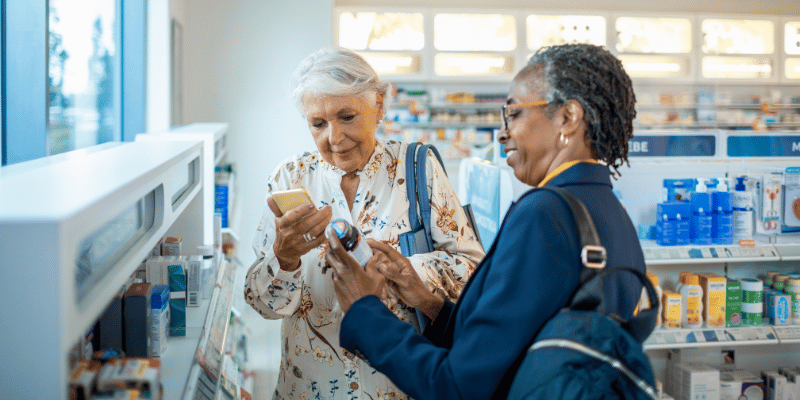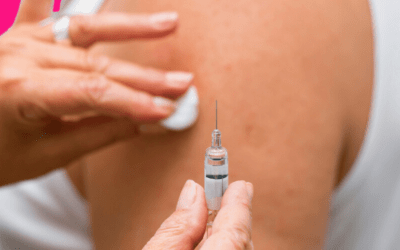In a ground-breaking move, the National Health Service (NHS) in England has launched the Pharmacy First initiative, welcoming a new era of accessible and convenient healthcare. Patients can now receive treatment for seven common conditions directly from their local pharmacy, eliminating the need for a GP appointment or prescription. This transformative initiative aims to streamline healthcare access, reduce GP appointment burdens, and provide patients with more choices and control over their care.
Expanding Services
With more than 10,000 community pharmacies participating in the Pharmacy First programme, patients across England from the 31st January 2024 will be able to have access to treatment to the following seven common conditions:
- Sinusitis (for those 12 years and over)
- Sore throat (for those 5 years and over)
- Acute otitis media (for those aged 1-17 years)
- Infected insect bites (for those 1 year and over)
- Impetigo (for those 1 year and over)
- Shingles (for those 18 years and over)
- Uncomplicated urinary tract infections in women (for those aged 16-64 years)
Patients may be referred to the service through NHS 111, the NHS app, urgent care or treatment facilities, A&E, 999, or via their GP. They can also access the service by attending or contacting the pharmacy directly.
To support this expansion, the government has earmarked £645 million in new funding for community pharmacy services.
How will pharmacies provide the Pharmacy First service?

Under the Pharmacy First initiative, pharmacists will be able to treat patients through seven specific Clinical Care Pathways provided by NHS England. These pathways will include self-care and safety netting advice, as well as the ability to provide over-the counter and a specific set of prescription only medications via Patient Group Directions (PGDs). In order to deliver the service, pharmacists must have registered for the service and access and become familiar with the Service Specification published by NHS England, the Clinical Pathways and the relevant NHS England PGDs.
The Pharmacy First Self-Assessment Framework, which was developed in collaboration with NHS England and Centre for Pharmacy Post Graduate Education (CPPE), highlights the key competencies needed in order to provide high quality and person-centred care and builds on the General Pharmaceutical Council’s (GPC) Standards for Pharmacy Professionals. This framework provides a useful tool for pharmacists to review their prior knowledge and expertise in treating minor illnesses and aims to help identify gaps in knowledge and specific training requirements.
Relieving Pressure on GPs and Empowering Patients

The launch of Pharmacy First is a strategic response to the growing demand for primary care services. By offering treatment for common ailments through pharmacies, the NHS aims to free up to 10 million GP appointments annually, ensuring that patients with more complex needs receive timely attention. This shift not only enhances efficiency within the healthcare system but also prioritises patient well-being by reducing wait times and improving accessibility.
The expansion of pharmacy services under the NHS Pharmacy First also gives patients more control over their healthcare decisions. With pharmacies frequently located within walking distance of the majority of the population, and some open late into the evening, getting treatment for these minor conditions will be more convenient and timely. This move helps to promote a proactive approach to health management, encouraging people to seek early intervention and preventative care.
Building on Success

Community pharmacies already play a significant role in promoting the health and wellbeing of their communities. Among their services is the provision of life-saving blood pressure checks through the Hypertension Case-Finding Service. It is hoped that screenings through this service will increase to 2.5 million per year by Spring 2025, up from 900,000 in 2022, with this expansion potentially preventing over 1,350 heart attacks and strokes in the first year.
The Pharmacy First initiative seeks to also build not only on the success of the Hypertension Case-Finding Service but also on the success of previous initiatives, including the expansion of Contraceptive Pill Services which rolled out in December 2023. Over 5,000 pharmacies are now offering this service, which has helped thousands of women to access contraception without the need to go to their GP or sexual health clinic.
Collaborative Efforts
The implementation of Pharmacy First requires a collaborative effort between the NHS, government, pharmacy organisations, and healthcare professionals. With significant investments and commitments to support community pharmacies, stakeholders are united in their mission to enhance healthcare accessibility, improve patient outcomes, and alleviate pressures on traditional primary care services.
By harnessing pharmacist expertise and extending the scope of community pharmacies the NHS is reshaping the landscape of primary care, prioritising accessibility and personalised care.
Looking Ahead at Pharmacy First

The launch of Pharmacy First marks a significant milestone in the evolution of healthcare delivery in England. Whilst it may take time for services to be implemented and pharmacists to be trained and ready for change, as the initiative takes root and evolves, it holds the potential to revolutionise healthcare delivery beyond England’s borders. By placing pharmacies at the forefront of primary care, the NHS is not only addressing immediate healthcare needs but also laying the foundation for a more resilient and person-centred healthcare system.
Interested to learn more?
To read more about the Pharmacy First initiative go to the Advanced Service Specification on the NHS England website. The Community Pharmacy England (CPE) have also published a helpful Frequently Asked Questions section on their website.
To find out more about the courses Health Academy offer for Pharmacists please visit our Pharmacy Courses page.




